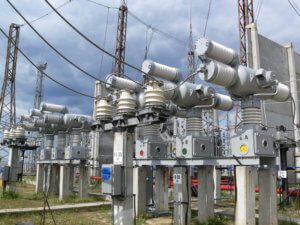
A concept of regulating transactions with cryptocurrencies names the National Commission for Securities and the Stock Market of Ukraine the main regulator on the cryptocurrency market and authorizes the commission to license cryptocurrency exchanges and cryptocurrency exchange points, according to materials posted on the website of the commission. In particular, it is proposed that the National Commission for Securities and the Stock Market will classify and define tokens as financial tools, regulate the exchange and purchase and sale of cryptocurrency through cryptocurrency exchanges, as well as Initial coin offerings (ICO).
At the same time, according to the concept, State Financial Monitoring Service is authorized to supervise cryptocurrency exchanges, and the Ministry of Finance and the State Fiscal Service – to supervise payment of taxes on income from operations with cryptocurrencies.
In addition, the concept proposes to define the concept of a cryptocurrency and a token. In particular, the token is proposed to be considered a “centralized or decentralized unit of accounting, which is based on mathematical calculations using a computer network and has cryptographic protection.” “Cryptocurrency is a token that functions as a way of exchanging and preserving value,” the commission said on the website.
CRYPTOCURRENCY MARKET, NATIONAL COMMISSION, REGULATOR, STOCK MARKET

PepsiCo Ukraine, one of the largest producers of food and beverages, is considering the localization of production of Lay’s chips. “PepsiCo Ukraine to further meet the demand of consumers is working to improve the efficiency of work. Localization of production is one of the ways. To this end, we are studying and analyzing the Ukrainian agrarian sector, its potential,” the press service of the company told Interfax-Ukraine.
PepsiCo produces chips under the Lay’s brand in Poland. PepsiCo in Ukraine owns five enterprises: a plant for processing fruits, vegetables and juice production (Mykolaiv region), a plant for production of juices, carbonated drinks and cold tea (Mykolaiv region), Kharkiv Dairy Plant (Kharkiv), Kyiv Dairy Plant (Kyiv region), where Agusha baby food factory, launched in 2012, is also located.

Ukrenergo on July 24 signed an agreement with KPMG Ukraine on the development of a compliance policy for the company, the press service of Ukrenergo has reported. “When developing the documents, emphasis will be made on specific compliance standards, concerning the work of transmission system operators, for which KPMG Ukraine will attract one of the German transmission system operators as a consultant,” the press service said.
In addition, on July 2 Ukrenergo signed a contract with the recruiting agency Talent Advisors LLC to find a compliance officer, who is also expected to be appointed as an agent for the implementation of an anti-corruption program in the company.
As reported, compliance is part of the management/control system in the organization, related to the risks of non-compliance with the requirements of legislation, regulatory documents, rules and standards of supervisory bodies, industry associations and self-regulatory organizations, codes of conduct, etc.

The European Bank for Reconstruction and Development (EBRD) under the Ukraine Sustainable Energy Lending Facility (USELF) will provide a loan of EUR 5.6 million to Ekotechnik Shyroke LLC to build a solar power plant in Dnipropetrovsk region with the installed capacity of 7 MW, the press service of the EBRD has reported.
The ten-year loan is provided. According to the EBRD, the owners of Ekotechnik Shyroke LLC are Ekotechnik Group (the Czech Republic) and Tryba Energy (France). According to the unified public register, the beneficiaries of the company are Aleš Korostenský (the co-owner of Ekotechnik Group) and Ukrainians Yuriy Zasiadvovk and Bohdan Yevtushenko.